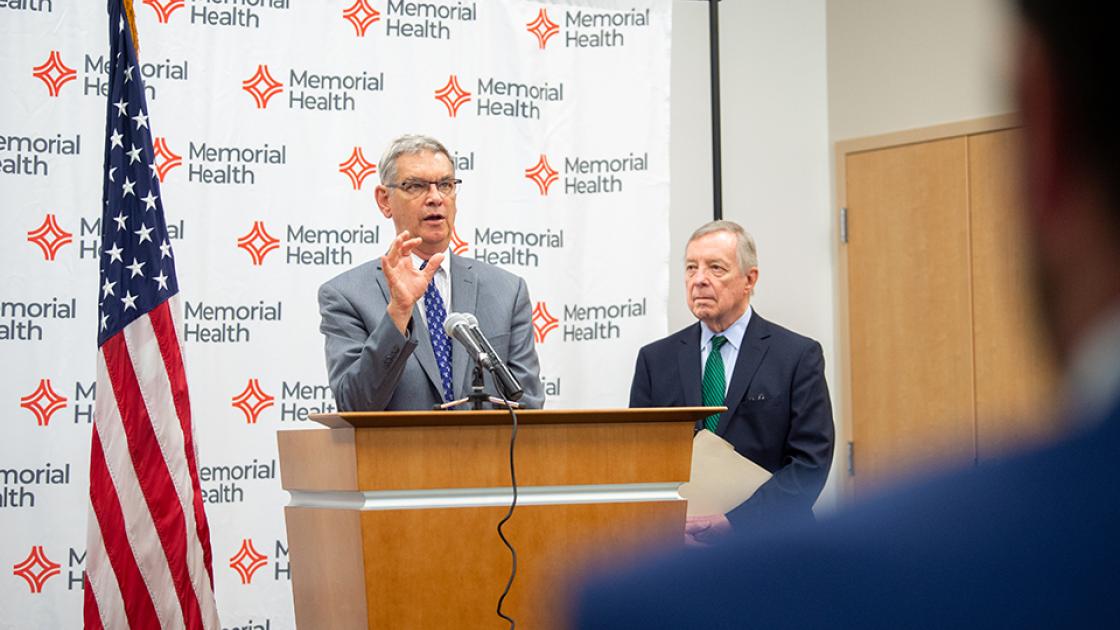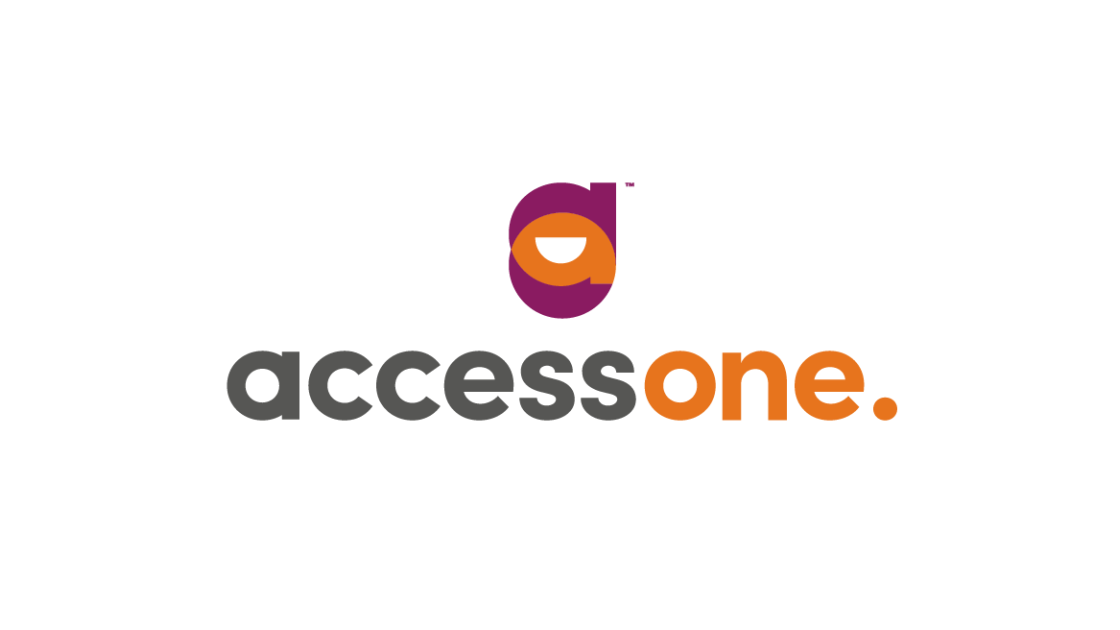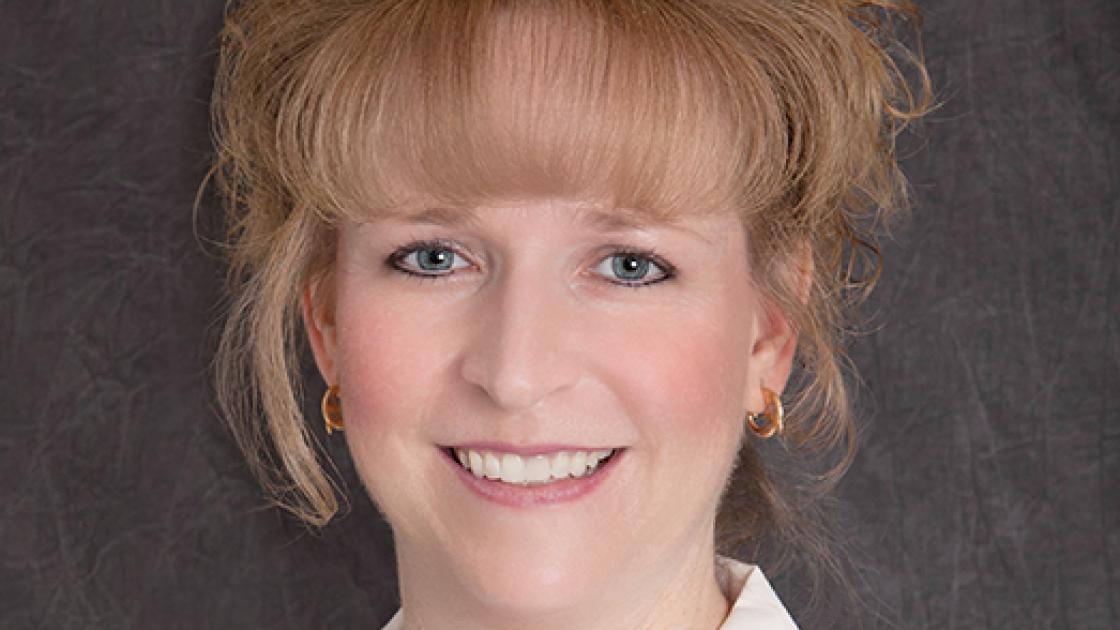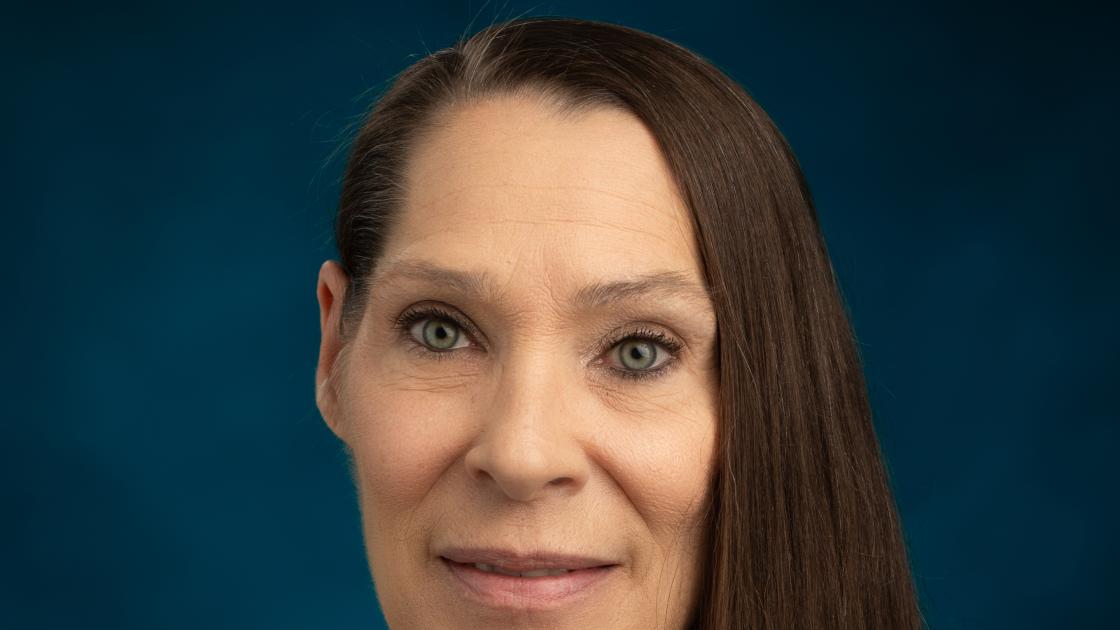
Durbin releases plan to address health care workforce shortages in rural Illinois
photo: Dr. Jerry Kruse, dean and provost of SIU School of Medicine, and Sen. Dick Durbin
LINCOLN, IL
U.S. Senator Dick Durbin (D-IL) today held a news conference with Illinois health care leaders to release his “Roadmap to Grow Illinois’ Rural Health Workforce.” The partnership with hospitals, community health centers, medical and nursing schools, community colleges, dentists, physicians, and nurses will organize efforts and provide new funding to address health care workforce shortages and staffing crises in rural Illinois. The full Roadmap report can be viewed here.
“The COVID pandemic showed us how important our rural hospitals and clinics are to keeping our communities healthy and safe,” Durbin said. “However, those rural hospitals and clinics are facing a real threat—not from a new virus, but from a shortage of health care professionals. I’ve spent the past year traveling the state to understand the challenges, including difficulty recruiting new physicians, too few EMTs entering the field, and not enough faculty to train new nurses. The comprehensive plan we are announcing today will help us address the root causes of these shortages by reaching into middle and high schools to attract young people into health careers, expanding the capacity of our education programs, and creating incentives for rural recruitment.”
As part of today’s unveiling of the Roadmap report, Durbin announced two federal Fiscal Year 2023 earmarks to help address the goals discussed in the report. Durbin secured $2 million for Illinois State University to expand its nursing school and $1 million for a Rural Health Institute at Southern Illinois University’s School of Medicine.
Nearly three million people in Illinois live in areas with too few dentists and every rural county in Illinois faces a shortage of mental health providers. While there are 90 doctors per 100,000 residents in urban parts of the state, rural counties have only 45 doctors per 100,000 residents. Prior to COVID, Illinois was already facing a shortfall of 15,000 nurses.
Nationally, a recent survey reported that 100,000 nurses left the field during the pandemic, and another 800,000 plan to retire soon. This is an especially dire problem in rural areas, where patients have to drive longer distances—often causing patients to put-off seeing someone for health conditions that can grow much worse without early medical intervention. Birth outcomes are worsening in rural areas, as fewer hospitals offer obstetrics. It’s estimated that we need 120,000 new physicians nationwide over the next decade to meet the needs of our communities.
Durbin authored a provision in the American Rescue Plan to invest $1 billion into the National Health Service Corps (NHSC), which funds scholarships and loan repayment for new doctors, nurses, dentists, and behavioral health clinicians who commit to serve in rural and urban areas of need. Medical professionals can graduate with student debt of more than $200,000, which can discourage them from pursuing these careers in the first place, or lead to them choosing to practice in high-paying specialties or in more affluent and urban areas. The NHSC program helps build the pipeline of new health providers and surge them to shortage areas. Today, Illinois has nearly 1,000 health professionals serving under the NHSC program. In March, Durbin and Senator Marco Rubio (R-FL) introduced the Restoring America’s Health Care Workforce and Readiness Act, which will reauthorize and increase funding for NHSC.
Durbin is also working on legislation to increase federal Medicare funding for residency slots to train more doctors at institutions like Southern Illinois University. Another Durbin measure would increase the number of nursing faculty by having the federal government close the pay gap between nurses and nurses in faculty positions. In 2021, 92,000 qualified applicants were rejected from nursing programs due to enrollment constraints. Closing the pay gap would help increase the number of nurse faculty to train future nurses. And in February, Durbin and Senator Susan Collins (R-ME) introduced the SIREN Reauthorization Act, which Durbin first passed into law in 2018, to extend funding for rural fire and EMS agencies to support training and recruitment of EMS professionals.
This Roadmap is endorsed by 11 of the leading health organizations in Illinois: Illinois Health & Hospital Association; Illinois Primary Health Care Association; American Nursing Association—Illinois; Illinois Critical Access Hospital Network; Illinois Association of Colleges of Nursing; Illinois State Medical Society; Illinois State Dental Society; Southern Illinois University School of Medicine; National Center for Rural Health Professions, University of Illinois College of Medicine Rockford; Illinois Community College Trustees Association; Deans and Directors of Illinois Community Colleges Nursing Programs.
For more information contact John Normoyle, (312) 833-0931 cell
John_Normoyle@durbin.senate.gov



